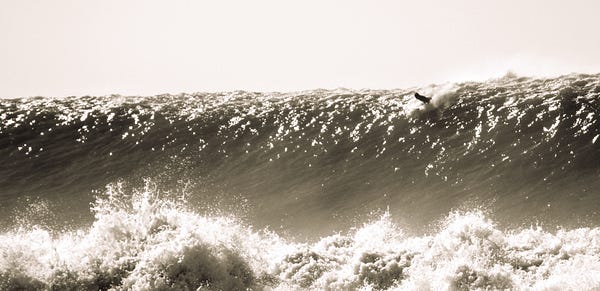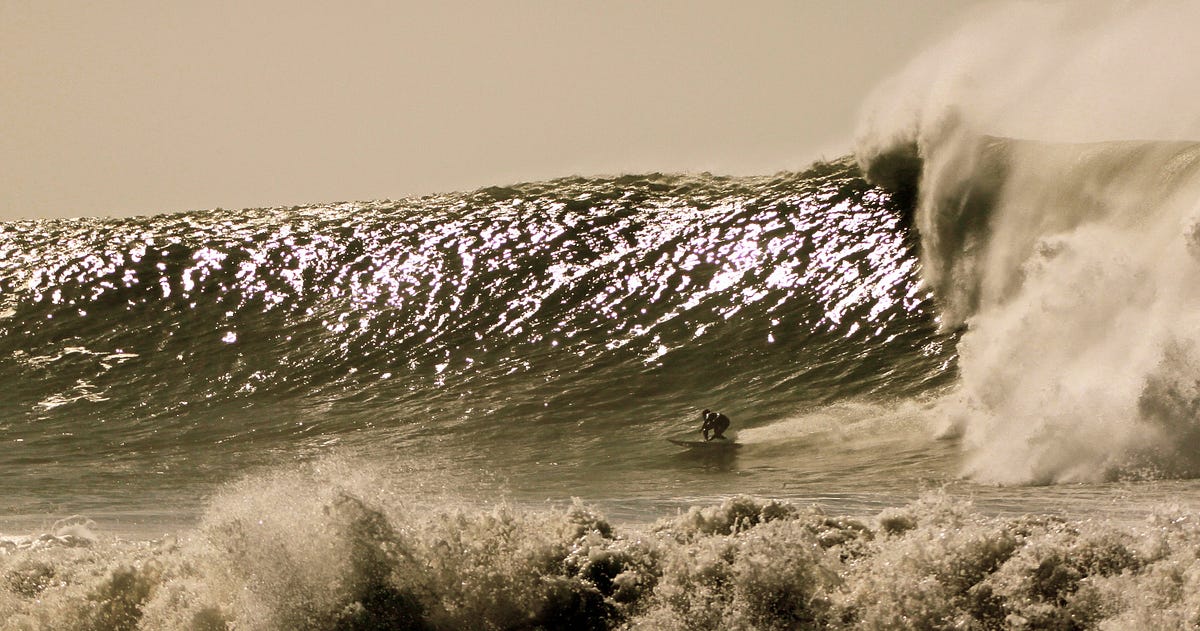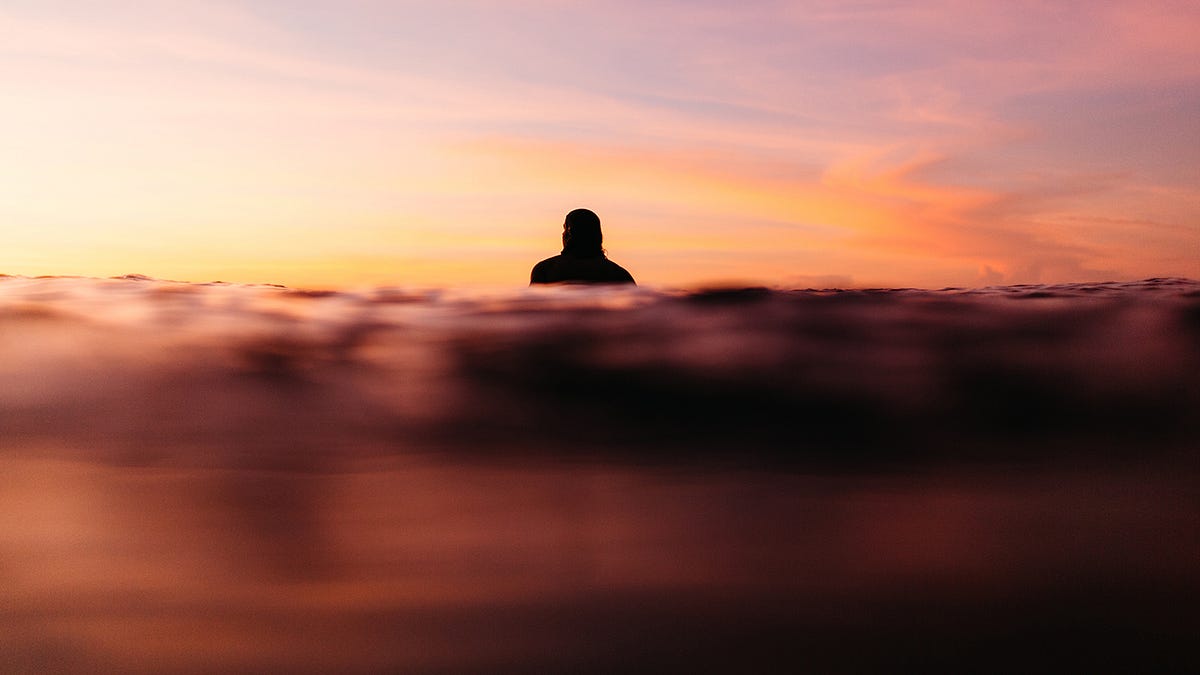On surfing the turbulent startup world
Jonny Miller looks into how to surf the big waves inherent in starting a business.
Applying the principles taken from a surfing addiction to the turbulent world of startups.
Go with the flow
Writing over a hundred years ago Jack London eloquently explained the best tactic to employ when you get hit by big waves:
“The whole method of surf-riding and surf-fighting, I learned, is one of non-resistance. Dodge the blow that is struck at you. Dive through the wave that is trying to slap you in the face. Sink down, feet first, deep under the surface, and let the big smoker that is trying to smash you go by far overhead. Never be rigid. Relax.”
This same tactic works just as well in a startup environment. If you are constantly trying to fight small deviations from your original idea, refuse to adapt to innovations in the industry, you’ll very quickly run out of steam.
Being open to new ideas and knowing when it is time to adapt or switch track is one of a startup's greatest assets.
Focus. Focus. Focus.
Those at the top of their game both in the ocean and on land tend to have desperate, obsessive focus.
In startups, this means throwing every fibre of your being into the project. In surfing, focus means going out into the ocean every day, even when the conditions are onshore and messy, your wetsuit is freezing cold and your friends are inside watching tv.
Be a Learning Machine
In the water this means watching others in the water, how deep do they sit in the line-up? What does their pop-up look like? How early do they kick off the wave to avoid the dry section?
In the world of startups, it is incredibly helpful to model your strategy on successful people who have braved the road before you. Why did they succeed? How did they build their community in the early days? Who were their first customers? Or one of the best questions of all — why did they fail?
Make it Look Easy
Some people in this of this world make flawless execution look easy. They have this frustrating ability to glide serenely along the surface as if they’re not even trying. It’s important to realise that this is an illusion.
Their performance — whether it’s Kelly Slater emerging from a perfect barrel or Steve Jobs giving an Apple Keynote speech, these performances only appear effortless because of the sheer number of hours they have spent in gruelling training, dedicated to honing their craft.
Perfect the art of timing.
Good surfers know that catching the best waves is an art – it comes down to positioning and wave choice. It isn’t always easy to guess what the shape of the reef is and then position yourself just outside where the sets are breaking.
You focus on the horizon, trying to judge the lumpy swell from shadows and when you see one, you paddle for the horizon as fast as you can. In startups the same logic applies, you need to understand the mechanisms and forces which drive consumer trends, watch users behaviour and position your idea or product within the right community at exactly the right time.
Make a decision, and fully commit to it.
In the water you’re constantly taking calculated risks - it is not possible to take every wave. If you tried, you’d end up paddling in circles and catching nothing. Instead, it is sometimes better to spend time sitting further out back and wait for the bigger sets.
Then when you pick your wave, you go for it with everything you have. You paddle like your life depends on it (sometimes it does!) Hesitancy here can translate to losing skin on the reef below.
Equally, in startups, it is essential to take the time to understand the problem you are solving and then be willing to commit to the idea with everything you have.
“Whatever you can do, or dream you can do, begin it. Boldness has genius, power, and magic in it. Begin it now.” — W. H. Murray



Embrace failure
If you paddle out into the ocean when insanely big sets are rolling in, you expect to take a pounding every once in a while. But it can be amazingly liberating knowing that you’ve taken the biggest pounding possible and yet you’re still alive. This inspires confidence because you no longer have anything to be afraid of.
Likewise, the most innovative companies design systems which plan for failure, not success. Life in a startup is a constant process of failing, picking yourself up, reflecting on what you learnt from your mistakes, and then forging ahead in new directions.
The bumps are an essential, humanising, and humbling part of the ride. But if you can muster up the courage to lean into uncertainty, to dare greatly, then it becomes fuel for the fire.
“Don’t fear failure. Not failure, but low aim, is the crime. In great attempts, it is glorious even to fail.” — Bruce Lee
Live in the moment
Surfing teaches you to be present. The first dive under the whitewash is invigoratingly painful. Not for a prescribed period of time, but as a friend once said, “for an eternity of moments”.
You catch a reflection of the morning sun. It restores your spirit and reduces you to a state of inarticulate wonder. As Mickey Smith says it is "where your heart beats the hardest".
In a startup environment, the perpetual streams of information and daily tasks make it extremely hard to achieve any state of ‘mindfulness’ - but it is vital that you work sustainably and manage your energy, not your time.
Working 100 hour weeks is plain foolish if you’re not working on the right things, feeling uncreative and heading towards burnout down the line.

Fuel your stoke
There is a lot of truth in the old saying that the journey is more important than the destination. No outcome, whether a perfect wave or startup exit is ever inevitable, what matters is that you wake up excited each morning and spend your days on something that lights you up. As Annie Dillard reminds us, “how we spend our days is, of course, how we spend our lives.”
Jonny co-founded the travel storytelling platform Maptia four years ago, that features stories from around the world whilst working remotely from five different continents. This post was originally published on the Maptia blog.
